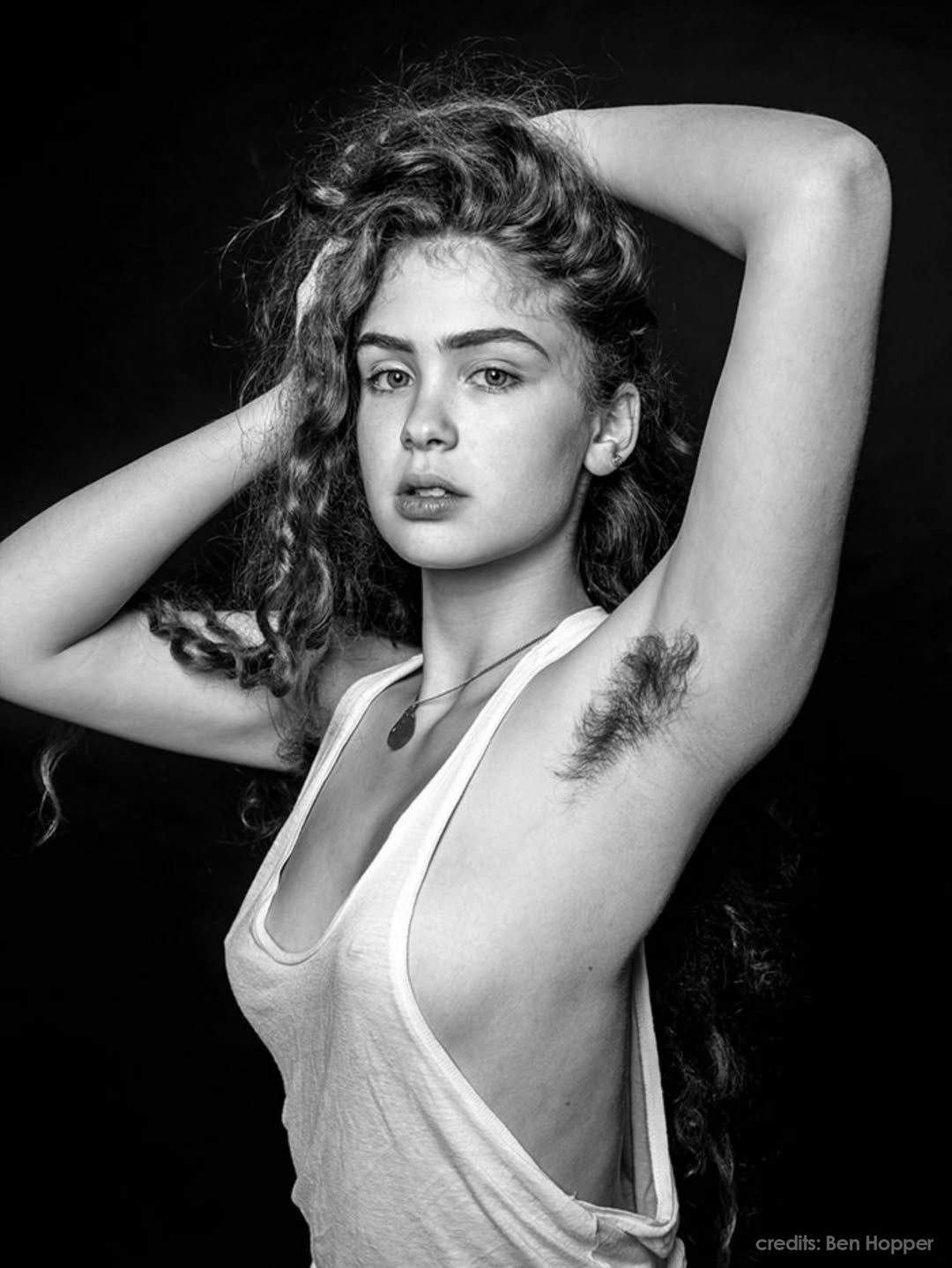
A powerful and provocative photo series is flipping the script on female beauty standards and challenging women to put down their razors and pick up a new accessory: natural armpit hair.
Long before razors, lasers, and waxing strips became everyday items in beauty routines, hair removal was already a deeply rooted practice.
In fact, the journey goes as far back as the Stone Age when both men and women used primitive tools – like seashells and sharpened stones – to scrape hair from their bodies.
‘Primitive ancestry’
Thousands of years later, Charles Darwin’s theory of natural selection introduced a new lens: fur loss attributed to sexual selection.
According to Darwin, the less body hair one had, the more “evolved” they appeared. This pseudo-scientific rationale gave hairlessness a new kind of social currency – sexual attractiveness and evolutionary advancement.
Being hairless became a sign of progress and desirability.
Feminine duty
By the 1900s, the idea that being hairless was a feminine duty was firmly cemented in society. Body hair became shameful, a flaw to be corrected rather than a natural state to be accepted.
“It’s been deeply stigmatized – it still is – and cast with shame,” Heather Widdows, author of “Perfect Me: Beauty as an Ethical Ideal,” told CNN. “Today, most women feel like they have to shave. Like they have no other option. There’s something deeply fraught about that – though perceptions are slowly changing.”
‘Very masculine’
Now, after centuries of “brainwashing,” women are flipping the script, rejecting long-held beauty standards that equated femininity with flawlessness – and hairlessness.
“The armpit hair is considered to be very disgusting, non-hygienic, repulsive, grotesque, very masculine,” London-based photographer Ben Hopper told Bored Panda.
Speaking of using his work to present women unfiltered, the photographer explained he wanted to explore why hairy armpits of females are “such a taboo.”
“And I was also interested to explore the concept of how we perceive beauty in popular culture. [When] you look at fashion and film industries, you have a very, very specific kind of beauty standards for women.”
‘Raw unconventional look’
Exploring how people respond to “females with armpit hair,” Hopper created his daring photo series, “Natural Beauty.”
“The whole point [of the series] is contrast between fashionable female beauty and the raw unconventional look of female armpit hair,” Hopper told the Huffington Post of the black and white photo spread. “I expect [the photos] will surprise a lot of people and I guess, in a way, that is one of my intentions.”
‘Primal power’
The project, that Hopper started to create in 2007, features intimate anecdotes and quotes from models and actresses fueling this movement. Participants share their personal journeys of liberation, choosing to showcase their natural selves unapologetically.
“I felt so relieved and free when I let it grow out. It felt like being able to breathe,” said one of the models who goes by the name Kyotocat. “It was incredibly comfortable too. I felt a confidence and boldness returning, like I was replenishing some kind of primal power.”
Sophie Rose, another one of Hopper’s hairy subjects explained it was “empowering” to not hide her body hair: “You feel stronger for not giving [in] to the way you’ve been told to be. I really enjoyed people recoiling in disgust, it was funny.”
Gabriela Eva, who grew her hair specifically for the photoshoot, revealed she was curious to know how she’d respond to the judgements. “It made me feel natural and vulnerable at first, and eventually empowered,” Eva said. “I’ve grown accustomed to my armpit hair, and it makes me feel beautiful. If I removed it now, I’d feel a little bare.”
Political statement
Sienna suggested that growing her armpit hair didn’t necessarily” make her feel empowered – “just comfortable.” “I don’t think women refusing to shave should necessarily be considered a radical act. Of course, it’s a way in which women can refuse to conform to patriarchal beauty standards, but I don’t want my body to consistently be read as a political space,” she explained.
Emilie Bostdt, a Swedish actor, writes in her excerpt that women with armpit hair should not be a political statement. “The fact that in this society something natural like growing your armpit hair is almost a statement, or a political act, is weird – and that’s a reason to grow,” she said.
Questions beauty standards
Despite the message of embracing body hair, Hopper clarified that he doesn’t necessarily “want women to start growing their armpit hair.”
“I just think that it’s a possibility and people shouldn’t dismiss it. I’d like people to just question [beauty standards], the whole thing,” he added.
As more voices join the conversation and projects like “Natural Beauty” gain traction, the possibilities for a more inclusive understanding of beauty continue to expand.
Please let us know if you think the world ready to embrace true natural beauty and then share this story so we can hear from others!
